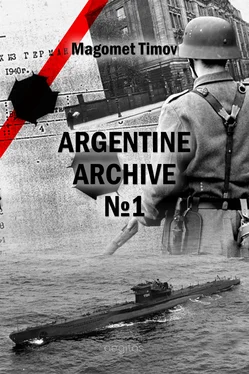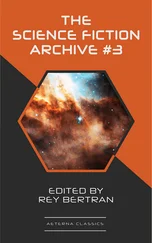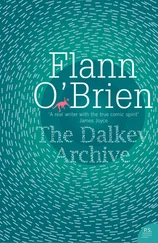Practiced hands removed the gangway with ease. The boat’s engine rattled even more insistently, and, rolling away from the side of the sub, disappeared into the night. Darkness enveloped the sub again as the searchlight went out. The sub got underway and, picking up speed, dissolved into the muslin sheets of rain. The fisherman fervently crossed himself and, having uttered praise to the Virgin Mary, pushed his still-unsettled son towards the hatch of the engine compartment.
As soon as the boat departed, the chief lieutenant went down to the deck to escort the guests to their cabins, which they had prepared for them in advance. He saw several figures wrapped in raincoats in front of him, and stretched out and raised his hand in salute.
“Heil!”
In front of him stood a short man with a civilian bearing, despite the uniform under his raincoat. Otto Wermuth took a silent step back and leaned on the conning tower with his hand.
“Welcome aboard, gentlemen!”
His mother would not have recognized his voice now. On this wet and icy April night, Oberleutnant zur See Otto Wermuth realized this was the last voyage of his life.
Tuesday, March 14, 1950
22:27
Stalin's dacha
Lavrenty Beria was sitting, immersed in the leather of the large sofa of the Great Living Room, and pondered. No, the purpose for which the almighty Master summoned him to his country residence today was, in principle, known to him. Not to say that he was not worried about the current situation after all. The status of the almost all-powerful Deputy Chairman of the Council of Ministers, who oversaw the USSR Ministry of State Security, the Ministry of Internal Affairs and the Ministry of State Control, was in a quite buoyant mood. And to sink it now would be a challenge, especially after the successful completion of the Soviet nuclear ‘deterrence’ program, as the cunning newspapermen characterized it.
But with some kind of scent unknown even to him, the former head of the NKVD felt clouds were gathering over him, and the danger came from Koba himself. He became too suspicious. Lately, his suspiciousness turned into some kind of persecution mania, and even the people closest to him feared this. Those who were not lucky have already disappeared from the political horizon, and some of them have disappeared altogether in the wilds of many camps. The rest became quiet, especially after the death of Zhdanov and the 'case of the poisoning doctors' that followed.
Beria buried his nose in the invariable dark kashne scarf. He did not throw off his coat, demonstrating to the Leader that he had arrived here only under the influence of circumstances and was striving again to take up his immediate duties as soon as possible.
The lock clicked almost inaudibly, the high door to the bedroom opened, and Stalin entered the living room with an inaudible step. He knew how to walk like a cat. He had learned on the rocky paths near his native mountains. Yuft boots almost silently crossed on the carpet, a jacket without shoulder straps and insignia, soft breeches. Nothing from the image of the Generalissimo, replicated by newsreels and many ceremonial photos.
Stalin walked to a long table, on which a helpful assistant had laid out some documents. He nodded to Beria as if he had only recently seen him.
“Hello, Lavrenty. Thank you for coming so quickly.”
Beria chuckled:
“When was it ever different, Koba?”
Stalin moved his moustache as if about to say something but then waved his hand, grabbed a piece of paper from the table and pushed it across the green tabletop towards Beria. The latter got up heavily from the plaintively groaning sofa, stepped up to the table, and took the sheet. It was a transcript of the report of one of the illegal agents. During his tenure as Commissioner General of State Security, he had seen enough such documents, and now he recognized them at a glance. He raised his eyes to Stalin as if asking permission.
Stalin chuckled, squinting slyly:
“Since when did you become so timid, Lavrenty? Read, we want to hear your opinion on this issue. The comrade reports exciting things.”
Stalin, meanwhile, went to the window at the far end of the hall and examined the riot of snow whirlwinds behind the tall windows. The storm refused to let Moscow and the Moscow region leave its embrace. The tall pines that surrounded the dacha were covered with shaggy caps of snow. Nothing outside the windows showed that this was not a January blizzard, but quite an ordinary spring day in March.
While Beria was reading the report of the head of the American station, Koba thoughtfully twirled the old, darkened pipe in his fingers. These days he smoked rarely. Even the once-beloved 'Herzegovina-Flor' no longer brought its former joy. The taste of tobacco seemed to dissolve his lungs, and no longer spun his head like before.
A slight rustle of paper at the table informed Stalin that his old friend and assistant had finished reading. The Father of the Nations slowly turned to him, jabbing in his direction with the shank of his pipe:
“Tell me, Lavrenty. Why, when you were the State Security Commissioner, if I may say so, such news was more or less predictable, but today it falls like snow on one’s head?”
Beria leaned back in his chair and chewed his lips, carefully choosing the words for an answer. Once upon a time, Koba lapped up the solutions he offered, but that was then.
When the pause exceeded critical limits, the Deputy Chairman of the Council of Ministers, weighing every word, said:
“This is the first time I have heard about this American project, Comrade Stalin.”
The phrase 'Comrade Stalin' had long become a conversational signal between them, words that define the parties' relationship at a certain moment. Now they became highly official. And it could not be otherwise.
In his report, the head of the US residency reported that the Americans, realizing that they did not seem to be winning the nuclear race and, perhaps, would lose shortly, threw enormous funds into developing bacteriological weapons. The relevant special services of a potential enemy could not ignore the experience of the Soviet Army, which destroyed similar Japanese laboratories during an unprecedented raid across the Gobi and Khingan sands. Then the tremendous scientific potential in this area fell into the hands of Soviet specialists as a trophy, and now the Soviet Union had some advantage in similar developments. In addition, Kurchatov, who did not stop at the success of the Semipalatinsk test, was actively working on the hydrogen weapon project.
And yet, the Americans tackled bacteria. As if forgetting about the 'nuclear race'. There was something wrong with that.
Finally, Stalin parted his lips and quietly said:
“We believe that this is just a distraction from our former 'allies'. Viktor Semyonovich, of course, is not the last in his business, but his eagles gave up. The facts show, Lavrenty, that the Americans and their allies will throw their major resources into creating an even more powerful nuclear charge, such as the one Kurchatov thought up.”
Beria chewed his lips, thinking for a moment.
“No,” he replied after a while. “They do not have enough scientific potential. We are now going head to head on all issues. Einstein refused to cooperate with them, and they have nowhere to get more fresh ideas.”
Stalin chuckled, and Lavrenty Pavlovich heard the sarcasm in it.
“And have you, by any chance, forgotten about the Germans, genatsvale? About those who worked with Heisenberg? After all, they were on the verge of creating a bomb back in 1945. If it weren’t for the Norwegian saboteurs who destroyed the heavy water plant in Telemark, who knows where the war would have gone in the end?”
Читать дальше












